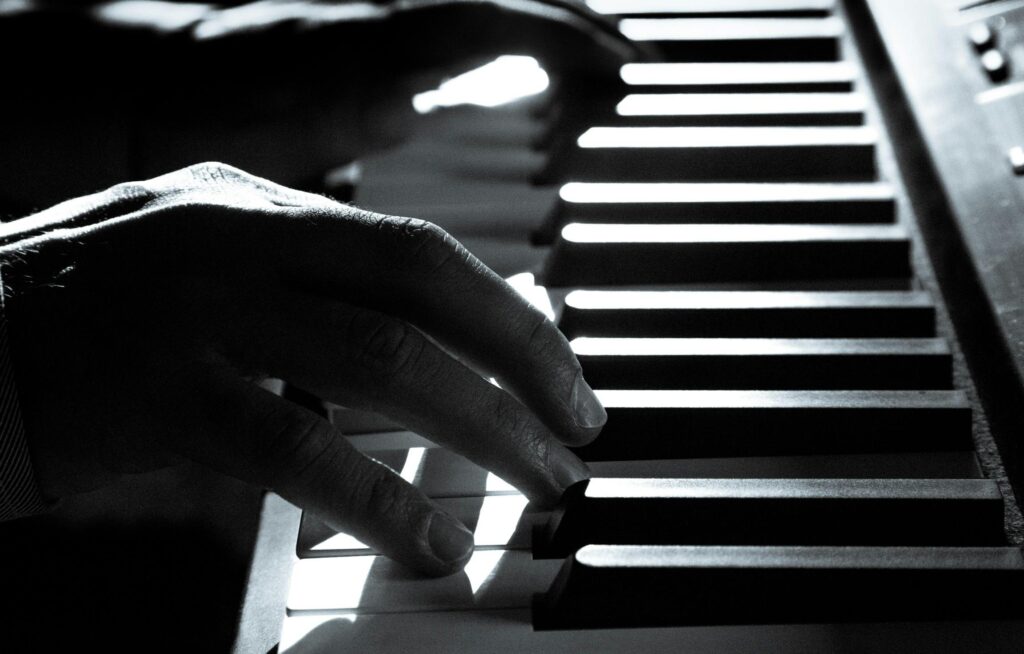Music Project Therapy
OUR TREATMENT PROGRAMS
Healing Through Music
Recovery from addiction and mental health challenges is a deeply personal journey that requires innovative and compassionate approaches. One of the most effective and enriching therapies we offer is Music Therapy. This dynamic and creative form of therapy leverages the powerful emotional and psychological effects of music to support healing, self-expression, and personal growth. Through Music Therapy, individuals in recovery can explore and express their emotions, build connections with others, and find solace and inspiration in the universal language of music.
What is Music Therapy?
Music Therapy involves the use of music—whether through listening, singing, playing instruments, or composing—to achieve therapeutic goals. This form of therapy is guided by a trained music therapist who tailors sessions to meet the specific needs and preferences of each individual. Music Therapy can include a wide range of activities, such as improvisation, songwriting, lyric analysis, and performance, all designed to enhance emotional well-being, foster self-expression, and support the recovery process.
In addiction treatment, Music Therapy serves as a non-verbal outlet for emotions, allowing individuals to explore and express feelings that may be difficult to articulate through traditional talk therapy. Music has the ability to evoke powerful emotions, memories, and experiences, making it an effective tool for addressing the emotional and psychological aspects of addiction.
Benefits of Music Therapy in Addiction Treatment
Music Therapy offers numerous benefits for individuals in addiction recovery, helping them engage in the therapeutic process in a meaningful and enjoyable way. The following are some of the key benefits of Music Therapy:
Emotional Expression: Music provides a safe and creative outlet for expressing emotions that may be difficult to verbalize. Whether through writing lyrics, improvising on an instrument, or singing, individuals can explore and release their feelings, which can be especially helpful for those who struggle with verbal communication in therapy.
Stress Reduction: Engaging with music can help reduce stress and anxiety, promoting relaxation and emotional well-being. The act of listening to soothing music or participating in musical activities can lower cortisol levels, helping individuals manage the stress that often accompanies addiction recovery.
Improved Mood: Music has the power to uplift and improve mood, providing a sense of joy and pleasure. By participating in Music Therapy, individuals can experience positive emotions, boost their self-esteem, and foster a sense of accomplishment, all of which contribute to a more positive outlook on their recovery journey.
Enhanced Self-Awareness: Through the process of creating and engaging with music, individuals gain greater insight into their own thoughts, feelings, and behaviors. Music Therapy encourages self-reflection and self-discovery, helping clients understand their emotional triggers and develop healthier coping strategies.
Building Social Connections: Group Music Therapy sessions offer a unique opportunity for individuals to connect with others who are going through similar experiences. Collaborating on music projects, sharing performances, and participating in group activities fosters a sense of community and support, which is essential for long-term recovery.
Coping Skills Development: Music Therapy can help individuals develop effective coping skills by providing them with creative ways to manage stress, anxiety, and cravings. By learning to channel their emotions into music, individuals can build resilience and find healthier ways to navigate the challenges of recovery.
Start your healing journey today. Call 443-449-5135

Our Music Therapy Treatment Program
Our Music Therapy program includes a variety of techniques and activities designed to address the diverse needs of our clients:
Songwriting: Clients are encouraged to write their own songs as a form of self-expression and exploration. Songwriting can help individuals articulate their experiences, reflect on their emotions, and gain a sense of ownership over their recovery journey.
Improvisation: Musical improvisation allows clients to experiment with sound and rhythm, fostering creativity and spontaneity. This technique helps individuals build confidence and develop new ways to express themselves.
Lyric Analysis: Analyzing and discussing song lyrics can provide insights into personal experiences and emotional states. This technique encourages clients to explore the meanings and messages in music, promoting self-awareness and emotional processing.
Group Music Activities: Group sessions involve collaborative music-making activities, such as drumming circles, ensemble performances, and collective songwriting. These activities enhance social interaction, build team skills, and create a supportive community among participants.

Integrating Music Therapy into Recovery
Music Therapy is an integral part of our comprehensive treatment approach at Unlimited Bounds. We believe in combining Music Therapy with other evidence-based therapies, such as Cognitive Behavioral Therapy (CBT) and individual counseling, to provide a well-rounded and personalized treatment plan.
By incorporating Music Therapy into our programs, we offer clients a unique and engaging way to address their emotional and psychological needs. The therapeutic use of music enhances traditional treatment modalities, providing clients with additional tools and resources to support their recovery journey.
